
10 Household Items That are Extremely Flammable Family Handyman
[Cooking, Motor, Mineral, Essential] Flash Point The average flashpoint temperature of vegetable oils is around 600 degrees Fahrenheit (315 Celsius). Well, this is very hard to say. There are a lot of different vegetable oils out there including, peanut, soybean, canola, coconut, rice bran, palm, safflower, sunflower, cottonseed, mixed oils, etc.

Is Cooking Oil Flammable? Exploring the Facts, Safety Tips and Risks The Knowledge Hub
How Do You Select The Right Cooking Oil? With so many oil options, here are a few things to consider when choosing an oil: Use: Are you sauteing, frying, grilling, roasting or baking? Choose an oil with a higher smoke point for cooking at high temperatures (like avocado oil).
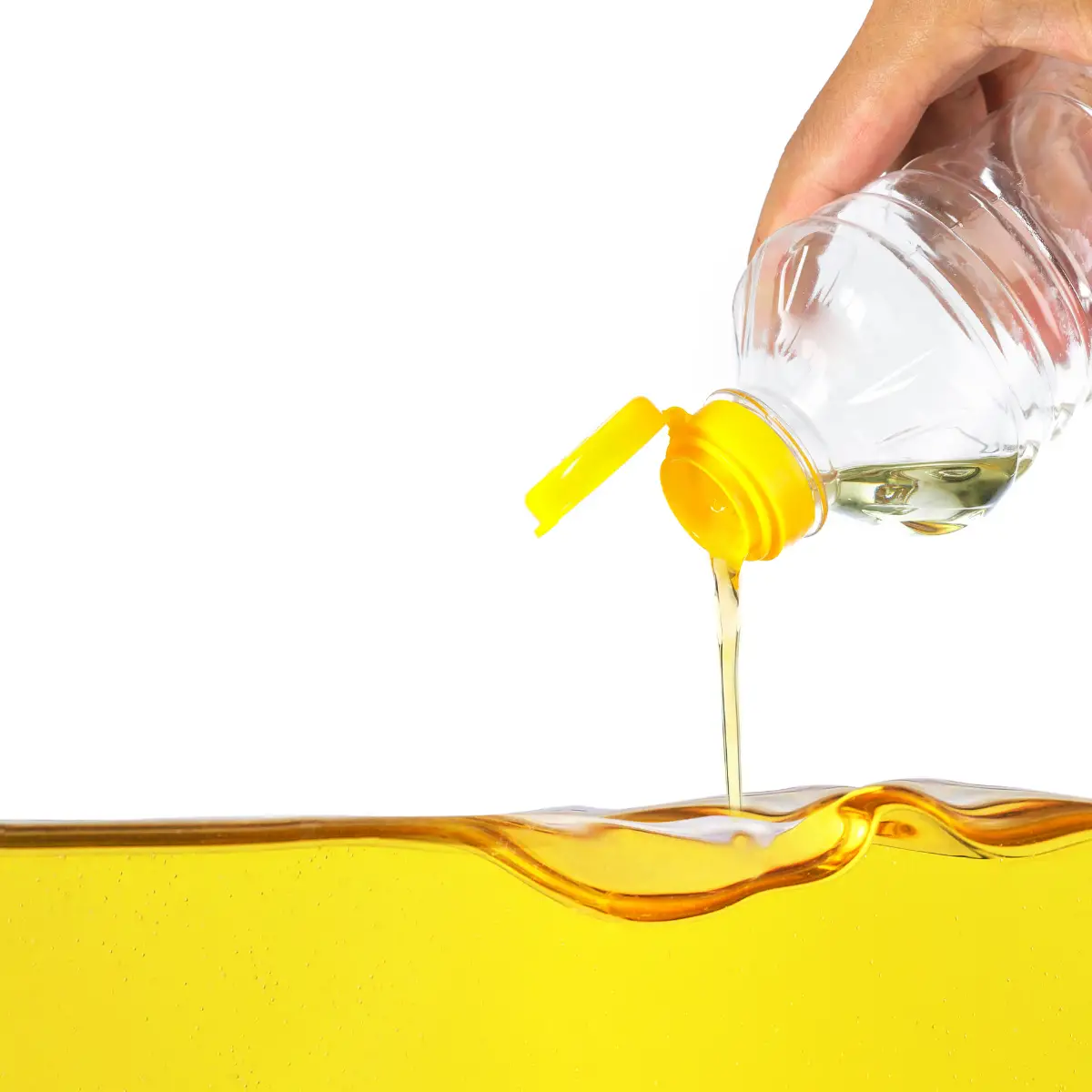
Is Vegetable Oil Flammable? Does It Catch Fire?
Cooking oil, which is commonly used in kitchens worldwide, is highly flammable due to its high carbon content and low flashpoint. The flashpoint refers to the. While vegetable oil is highly flammable, it does not necessarily catch fire easily. The oil's flashpoint, which is the lowest temperature at which vapors are ignitable, is around.

Is Vegetable Oil Flammable? (Flashpoint Of Vegetable Oil)
If you are wondering whether cooking oil is flammable, the short answer is yes. However, as you dig into this topic, you will find that technically speaking, the answer is no. Are you confused yet? Cooking oils can catch fire in your kitchen when they are heated on the stove or in a deep fryer.

Is Cooking Oil Flammable? (Flashpoint of Cooking Oil)
Is Cooking Oil Flammable? Cooking oil can catch on fire. Fats that are liquid at room temperature are used to make cooking oils. They can easily catch fire and burn when exposed to high temperatures, like those used in cooking. Most cooking oils can be set on fire between 400 and 435 degrees Fahrenheit (204 and 224 degrees Celsius).
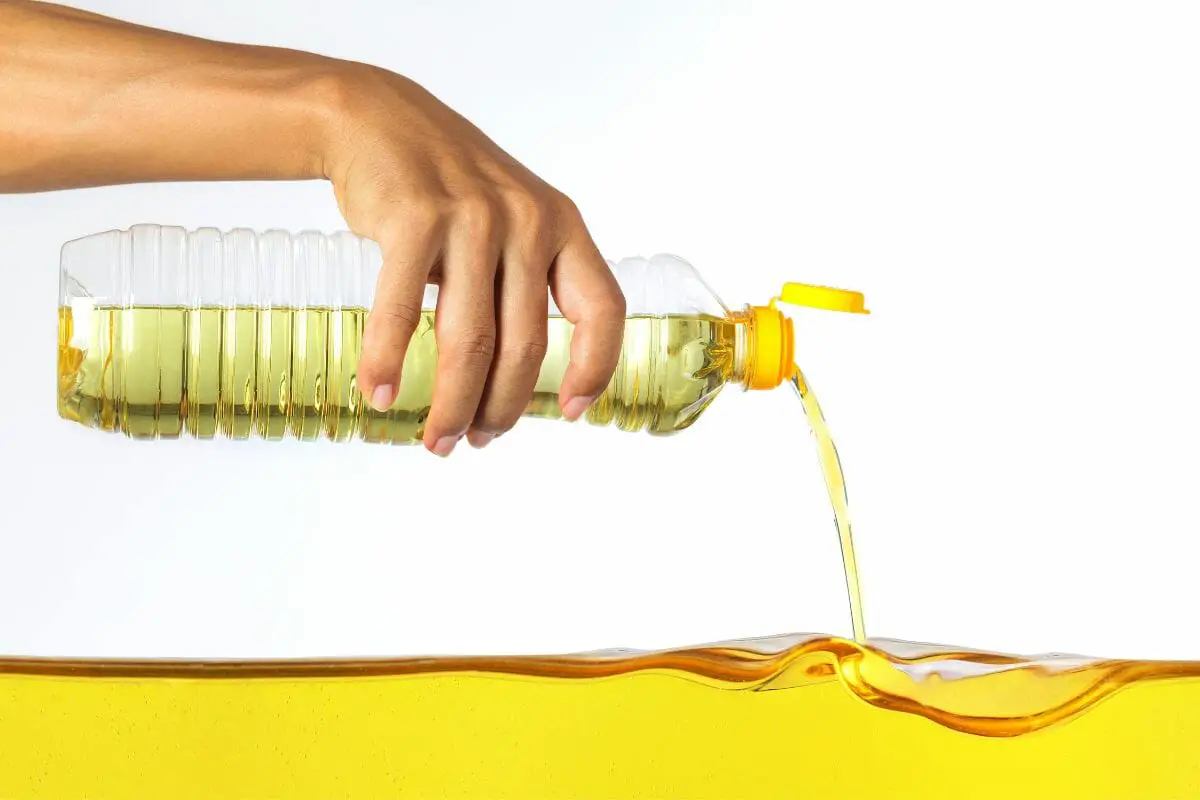
Is Vegetable Oil Flammable? It Depends SConFIRE
Common cooking oils that are flammable include vegetable oils, such as canola oil, corn oil, peanut oil, and sunflower oil. These oils have flash points between 365°F and 410°F (185°C and 210°C). Other types of cooking oils, such as olive oil, coconut oil, and butter, are not flammable because their flash points are above 410°F (210°C).
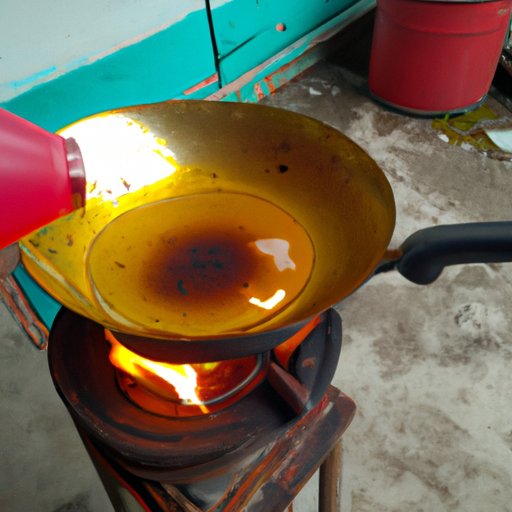
Is Cooking Oil Flammable? Exploring the Facts, Safety Tips and Risks The Knowledge Hub
Cooking oil is considered flammable if it has a flash point of 100 degrees Fahrenheit (37.8 degrees Celsius) or higher. Flash point is the temperature at which an oil can give off enough vapor to form a combustible mixture with air. Below its flash point, an oil will not vaporize enough to ignite.
Is Cooking Oil Flammable? (Flashpoint of Cooking Oil)
Common question: Is cooking oil combustible? The US fire department counted around 172,900 fires between 2014 to 2018 that started due to cooking activities. The question arises: how cooking activities led to such a massive amount of kitchen fires that resulted in around 550 deaths and 4820 fire injuries?

Is Olive Oil Flammable? Oliver & Grapely
To put simply, cooking oil is not technically flammable, but as we earlier stated, it can catch fire in a normal cooking instance, especially when you don't use it properly and carefully. The reason why cooking oil is not considered flammable is that it has a flashpoint that is around the 600°F mark, which technically may not be seen as flammable.
Is Cooking Oil Flammable? (Flashpoint of Cooking Oil)
Yes, oil is flammable. It has the ability to ignite and burn when exposed to heat or an open flame. This characteristic can make oil a potential hazard if not handled with caution, but it also makes it a valuable resource for generating energy and heat.
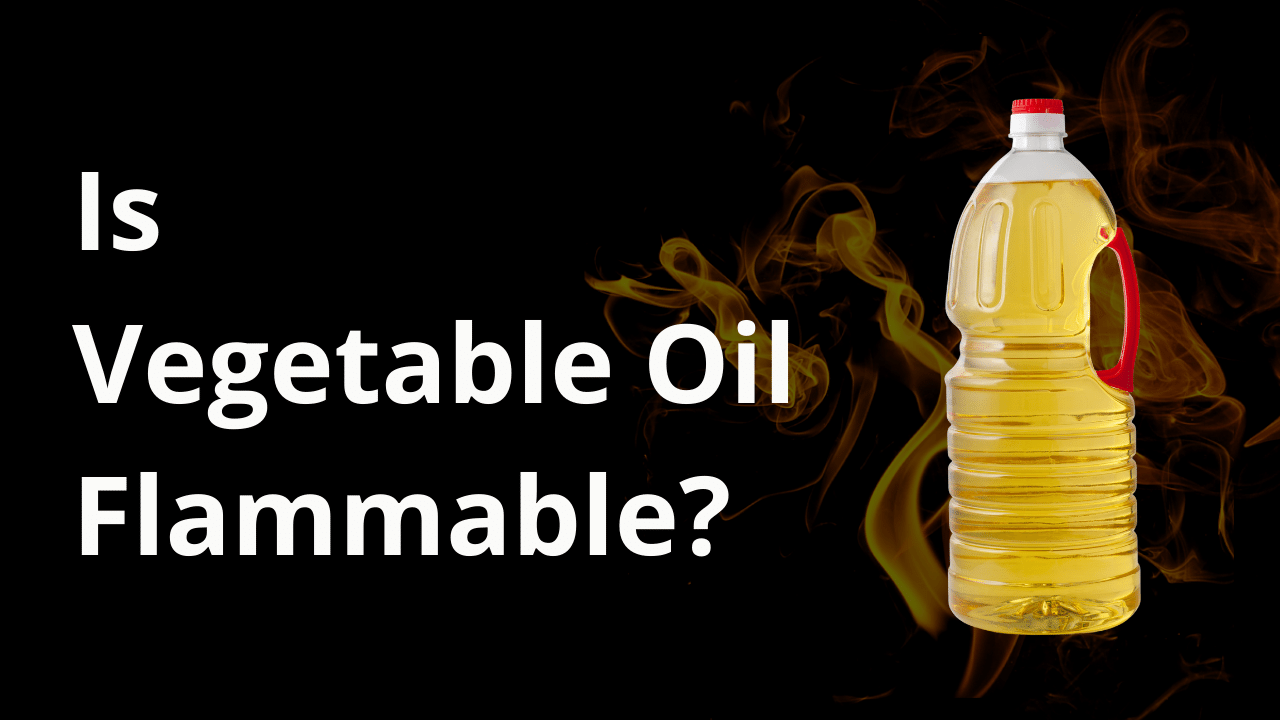
Is Vegetable Oil Flammable? StuffSure
Cooking oils are highly flammable and can be hazardous if not used properly. Oils very on smoke and flash point and its key to know the difference between each one. A flashpoint is the temperature at which an oil creates flammable vapors that when exposed to heat can cause a fire. For most cooking oils, the flashpoint is around 600° F.
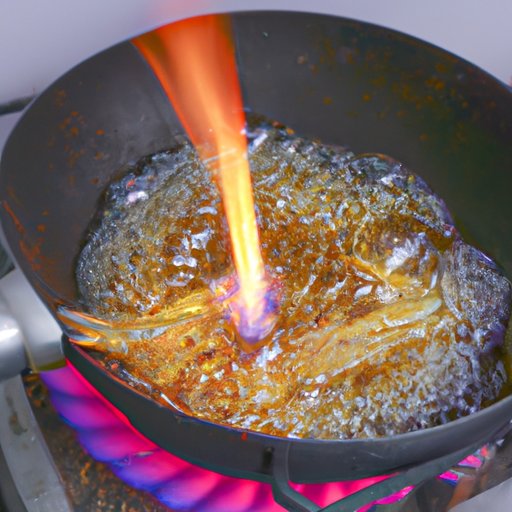
Is Cooking Oil Flammable? Exploring the Facts, Safety Tips and Risks The Knowledge Hub
Yes, vegetable oil is flammable. Vegetable oil is one of the most common cooking oils, and it's one with a relatively high flash point in relation to its smoke point. Vegetable oil has a flashpoint of around 600°F, give or take, but a smoke point that is much lower around 400°F to 450°F.
Is cooking oil flammable or combustible? Quora
by Admin Vegetable oil is a kitchen staple in so many homes. But have you ever asked yourself this: is vegetable oil flammable? And does it catch fire? well, you're about to find out. It's hard to imagine a kitchen without cooking oil. Cooking oil is used in cooking and preparing different types of dishes.
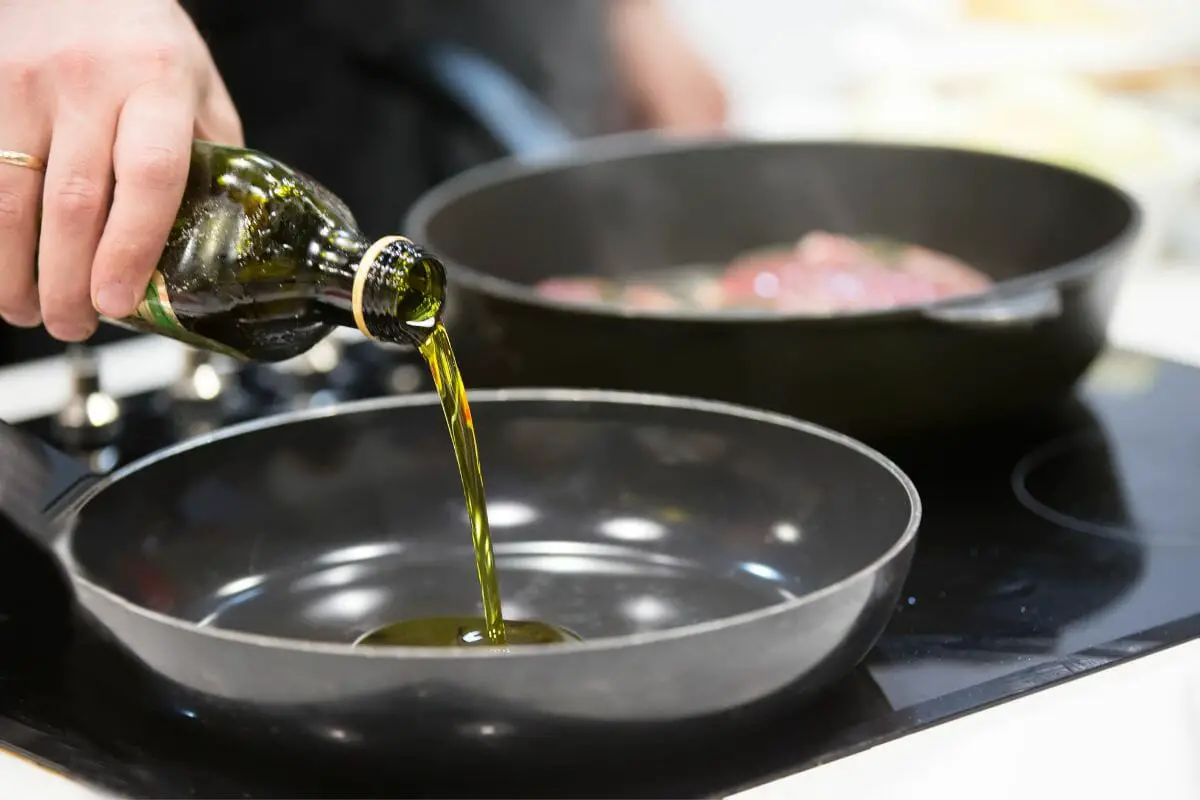
Is Vegetable Oil Flammable? It Depends SConFIRE
OSHA ( 1910.106 (a) (19)) states that any liquids that have a flashpoint at or below 199.4 degrees Fahrenheit (93 Celsius) are flammable and others are not. Even if those liquids (like most oils) can still catch fire. Flashpoint is the temperature at which a liquid emits enough fumes (flammable vapors) to ignite with a spark or flame.
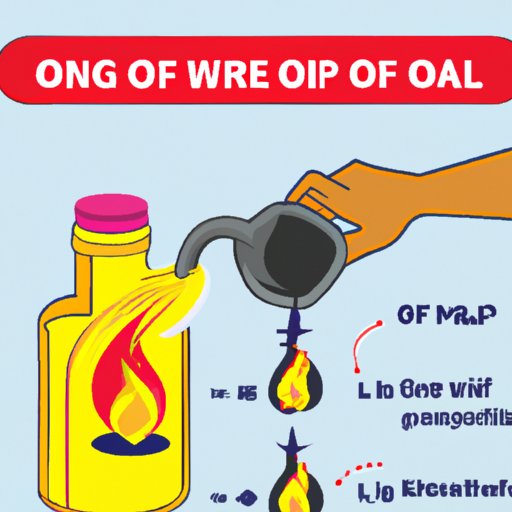
Is Cooking Oil Flammable? Exploring the Facts, Safety Tips and Risks The Knowledge Hub
Find out if cooking oil is flammable or combustible. Learn about the fire hazards associated with cooking oils and how to stay safe in the kitchen. Recent Posts. What temperature to cook pork steaks. December 18, 2023. What temp to cook pork chops on pellet grill. December 18, 2023.

Is Cooking Oil Flammable Does It Really Matter What Kind of Cooking Oil You Use / To
No, cooking oils are not technically flammable, but are combustible and the source of many kitchen fire hazards. They have high flash points of between 325 °F and 600 °F. However, the smoke point and ignition temperatures of cooking oils vary depending on the type and how processed the oil is.